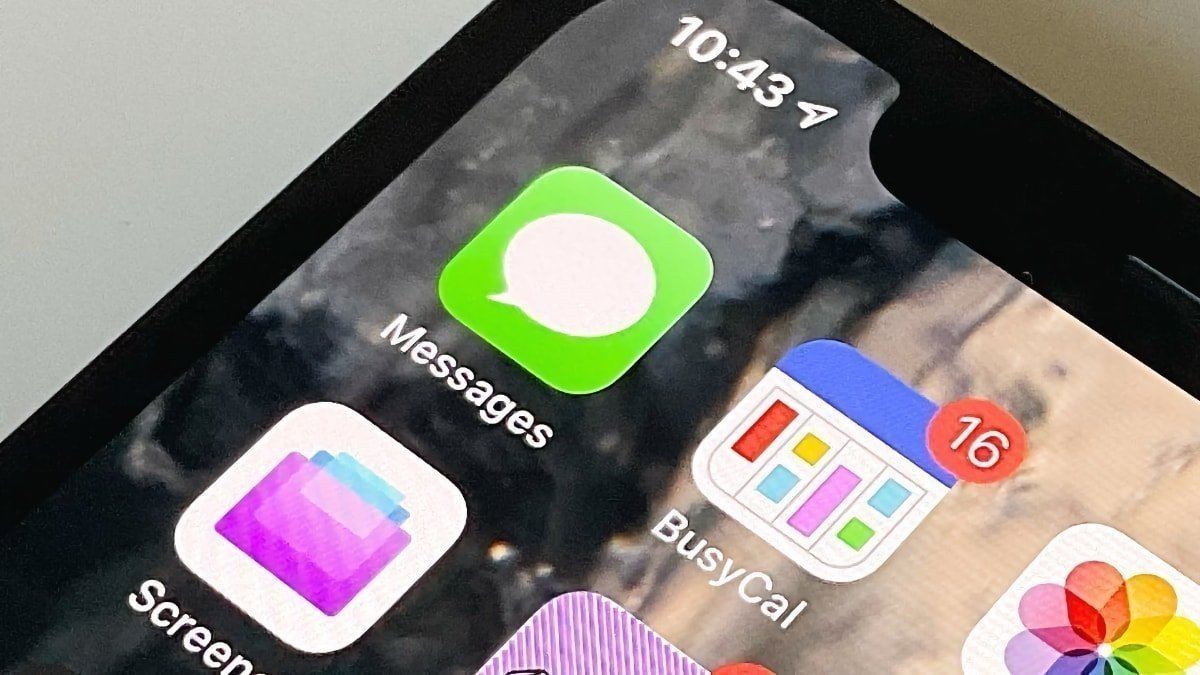Apple's Messages app won't send audio messages with an ampersand
The ampersand seems to be a bit of a problem for the iOS Messages app, as the application can't transcribe voice and send messages of popular names containing the character.

Apple's Messages app can't process audio messages with an ampersand.
There have been some interesting, and sometimes unfortunate, bugs with Apple's Messages and text-to-speech functions. The latest is a bit odd, but mostly affects names with a specific special character.
Some users may face difficulties stating names of specific brands, such as Ben & Jerry's, Dolce & Gabbana, Tiffany & Co., and so on, via Messages. Users who've tried to send voice messages with such brand names and phrases say their messages won't go through at all. The voice message will appear on the sender's phone, but not on the recipient's device.
As spotted by MacRumors, the issue itself was first brought to light in an episode of The Search Engine podcast. The phrase "Dave & Buster's" apparently led to the discovery of the glitch. It's not a major issue by any means, but the how and why of it is rather intriguing.
The problem is reportedly tied to the accompanying audio transcription rather than the voice messages themselves. Apple's software transcribes brands such as H&M by using an ampersand rather than the word "and," but the transcription engine incorrectly renders the ampersand in XHTML.
This, in turn, causes a parsing error on the recipient's device, which automatically activates Apple's built-in Blastdoor protection feature within Messages. It appears as though the Blastdoor feature relies on problematic parsing, which causes it to recognize messages with an ampersand as potential malware. This is likely why the messages aren't displayed on the recipient's device.
It isn't clear if Apple will need to update iOS itself with a bug fix or if the parsing issue can be fixed in the back end. Apple just released iOS 18.5 on Monday, which doesn't address the issue.
Read on AppleInsider

Comments
About this... (corrections in bold)
The transcription engine is not doing anything wrong. The ampersand needs to be encoded. Unless the author meant that the ampersand is being *displayed* in its encoded form?
And for those wondering why the author wrote XHTML specifically, it's because of the strictness needed when sending encoded messages. It's not just HTML, but the much more strict XHTML, which is HTML encoded as an XML document.
I normally defend Apple for having minor bugs, but this one is inexcusable and should have been caught with very basic and routine test cases.
But there's a possibly related problem when I copy text from a site or received text likely originating from a PC. Instead of an ampersand I see various characters surrounding amp. Is this a result of the ampersand needing to be encoded? Or could it be the "sent" ampersand is of a unicode that a macOS doesn't see? That would be strange since all the other text renders as normal in TextEdit, Safari, Mail, etc.
Probably completely unrelated. Just thought I'd ask,